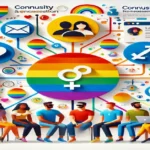Sin is a concept that transcends individual belief systems, shaping how different societies view human behavior and ethics. The term “sinfuldeeds” refers to actions or behaviors that are considered morally wrong, unethical, or transgressions against divine or spiritual laws. While the specific nature of sin varies across different religions and philosophical frameworks, the underlying idea is that such deeds violate moral codes, whether imposed by religious doctrine or social consensus.
This article aims to explore the notion of sinful deeds in various religious and philosophical traditions, the psychological and societal impact of such actions, and the broader ethical implications.
Defining Sinful Deeds
At its core, sinfuldeeds are acts that are perceived as wrong by a moral or religious standard. In many traditions, sin is seen as an offense against God, divine order, or a set of universal moral principles. The word “sin” itself comes from the Old English syn, which means an immoral act considered to be a violation of divine law.
Sinful deeds often involve actions that harm others, oneself, or the broader moral or social order. Examples include lying, cheating, stealing, and engaging in harmful or violent behavior. In religious traditions, sinful deeds may also encompass more spiritual violations, such as idolatry, blasphemy, or a lack of faith.
While sin can be understood as an individual act, many believe that it also has collective implications, affecting the community, society, and even the spiritual world.
Religious Perspectives on Sinful Deeds
Christianity
In Christianity, sinfuldeeds are considered actions that violate God’s commandments and principles as outlined in the Bible. The most widely known list of moral laws is the Ten Commandments, which address behaviors such as murder, adultery, theft, and bearing false witness. Christians believe that sin separates individuals from God and that Jesus Christ’s sacrifice on the cross provides a means for forgiveness.
The concept of original sin also plays a significant role in Christian thought. According to Christian doctrine, all humans inherit original sin from Adam and Eve, the first humans who disobeyed God in the Garden of Eden. This belief suggests that sinful deeds are a result of humanity’s inherent fallenness, and redemption requires repentance and acceptance of Christ’s grace.
In Christianity, sinfuldeeds are often seen as acts of disobedience that stem from selfish desires, pride, and the inclination to serve one’s own interests over God’s will. The New Testament emphasizes that individuals should strive to live according to the teachings of Christ, cultivating virtues like love, compassion, and humility.
Islam
In Islam, sinfuldeeds are actions that contravene the teachings of Allah as revealed in the Qur’an and through the Hadith (sayings and actions of the Prophet Muhammad). Muslims believe that sin is a violation of the divine law and that human beings are inherently good but prone to temptation and error.
The Qur’an categorizes sin into two types: major sins (known as kabair) and minor sins (sagha’ir). Major sins include actions such as shirk (associating partners with Allah), theft, murder, adultery, and false witness. Minor sins, while still forbidden, do not carry the same weight and can often be forgiven through prayer and good deeds.
One of the key aspects of Islam’s view on sin is the possibility of repentance (tawbah). Muslims believe that Allah is compassionate and merciful, and anyone who sincerely repents for their sinful deeds can be forgiven, regardless of the severity of their actions.
Judaism
Judaism places a strong emphasis on the concept of sin (chet), which refers to missing the mark or falling short of moral and spiritual standards. In Jewish thought, sin is not just a matter of violating divine commandments but also involves the moral and ethical consequences of one’s actions.
The Jewish tradition has a detailed framework of laws and commandments, known as halakha, which guide behavior. Sinful deeds in Judaism include actions like dishonoring parents, bearing false witness, and not observing the Sabbath. However, there is also an emphasis on atonement and repentance (teshuvah), which involves recognizing the wrong, feeling remorse, and making amends.
Sin is understood as something that disturbs the harmony between individuals, their communities, and God. However, Judaism also stresses that people are responsible for their actions and can choose to follow God’s laws to live righteous lives.
Hinduism
In Hinduism, sinfuldeeds are often linked to the concept of karma. Karma refers to the law of cause and effect, where every action (whether good or bad) has consequences. Sinful deeds, in this context, accumulate negative karma that affects one’s current life and future reincarnations.
Hinduism’s approach to sinful deeds is nuanced, as the idea of sin is not always seen in terms of a violation of divine law but rather as actions that disrupt cosmic order (dharma). Acts such as lying, stealing, and causing harm to others are considered sinful because they create imbalance and suffering.
One’s ability to overcome sinful deeds is tied to personal growth and spiritual practices such as prayer, meditation, and devotion to God (Bhakti). Repentance and seeking forgiveness from God and the divine are also central aspects of Hindu spirituality.
Buddhism
Buddhism, unlike many other religions, does not frame sinful deeds as violations of divine law but as actions that perpetuate suffering and hinder spiritual progress. Buddhist teachings suggest that sinful deeds are rooted in ignorance, attachment, and aversion, which are considered the causes of suffering (dukkha).
The Five Precepts in Buddhism provide ethical guidelines for living a virtuous life. These precepts include refraining from killing, stealing, lying, engaging in sexual misconduct, and intoxicating oneself. By following these principles, Buddhists believe individuals can reduce suffering and progress toward enlightenment.
Buddhist views on sin also emphasize personal responsibility and self-awareness. Rather than relying on divine forgiveness, Buddhists focus on purifying the mind and cultivating virtuous qualities such as compassion, mindfulness, and wisdom.
Psychological and Societal Impacts of Sinful Deeds
While the religious view on sinfuldeeds is predominantly focused on spiritual and moral violation, psychology provides a different lens through which to understand why people commit immoral or harmful actions.
The Psychology of Sinful Deeds
From a psychological standpoint, sinful deeds often stem from a combination of internal factors, such as personal desires, emotions, and cognitive biases, as well as external influences like social pressure, upbringing, and environmental circumstances.
- Cognitive Dissonance: One psychological explanation for sinful deeds is cognitive dissonance. This theory suggests that when individuals engage in actions that conflict with their self-image or moral beliefs, they experience psychological discomfort. To reduce this discomfort, they may justify or rationalize their behavior, convincing themselves that their actions were not as wrong as they initially seemed.
- The Role of Emotions: Emotions such as anger, jealousy, fear, and insecurity can lead to sinful deeds, especially when individuals act impulsively or irrationally. For example, a person might steal out of desperation or commit violence due to anger or a perceived threat. Psychological research has shown that when individuals are in a heightened emotional state, their capacity for self-control may diminish, leading to behaviors they would otherwise not engage in.
- The Influence of Socialization: From a societal perspective, a person’s environment plays a significant role in shaping their moral compass. Family dynamics, peer influence, and societal norms all contribute to how individuals perceive right and wrong. A person raised in an environment that condones dishonesty or aggression may be more likely to engage in sinful deeds because they have learned that such behaviors are acceptable or even necessary for survival or success.
The Societal Impact of Sinful Deeds
Sinful deeds can have far-reaching consequences, not just for the individual but for society as a whole. Criminal behaviors such as theft, fraud, or violence often lead to legal consequences and social stigmatization. These actions can damage relationships, undermine trust, and contribute to the breakdown of social order.
Moreover, the collective impact of sinful deeds can be seen in broader societal issues, such as inequality, injustice, and systemic corruption. When individuals or groups consistently engage in immoral actions, they contribute to a culture of wrongdoing, perpetuating harm and suffering across generations.
Redemption and Forgiveness
Regardless of the religious or cultural context, many belief systems emphasize the possibility of redemption. The concept of repentance, seeking forgiveness, and making amends for sinful deeds is central to many spiritual traditions. Whether through prayer, acts of charity, self-reflection, or seeking reconciliation, the idea of overcoming sin and restoring one’s moral integrity is a powerful and transformative force.
Conclusion
Sinful deeds are an enduring concept that cuts across various religious, cultural, and philosophical boundaries. While the specifics of what constitutes sin vary widely, most systems of thought agree that such actions harm not only the individual but also the broader community or spiritual order. The psychological, societal, and moral implications of sinful deeds remind us of the complexities of human behavior and the importance of ethical living.
Forgiveness, redemption, and personal responsibility are also integral themes, as many belief systems provide pathways to amend and grow beyond past wrongdoings. Understanding sinful deeds, from both a spiritual and psychological perspective, helps us better navigate our actions and their consequences in a way that fosters personal growth and communal harmony.
Frequently Asked Questions (FAQs)
- What are some common examples of sinful deeds across different cultures?
- Common examples include lying, stealing, adultery, murder, and dishonoring parents. The specific list varies depending on cultural and religious teachings.
- Can sinful deeds be forgiven?
- Many religious traditions, such as Christianity, Islam, and Hinduism, emphasize the possibility of forgiveness through repentance, prayer, and good deeds. The concept of forgiveness varies but often focuses on the idea of moral and spiritual redemption.
- Are sinful deeds always intentional?
- Not all sinful deeds are intentional. Some may result from ignorance, impulsivity, or emotional distress. However, many traditions emphasize the importance of awareness and personal responsibility in making moral choices.
- What impact do sinful deeds have on society?
- sinfuldeeds can erode trust, harm relationships, and contribute to social instability. Widespread immoral behavior can lead to systemic issues such as inequality and corruption.
- How does psychology explain sinful deeds?
- Psychology attributes sinfuldeeds to factors like cognitive dissonance, emotional distress, and social influence. Impulsive behavior, lack of self-control, and rationalization are common psychological explanations for immoral actions.
- Can individuals change after committing sinful deeds?
- Yes, many belief systems emphasize the possibility of transformation and redemption. Through repentance, self-reflection, and seeking forgiveness, individuals can change and grow beyond their past mistakes.







